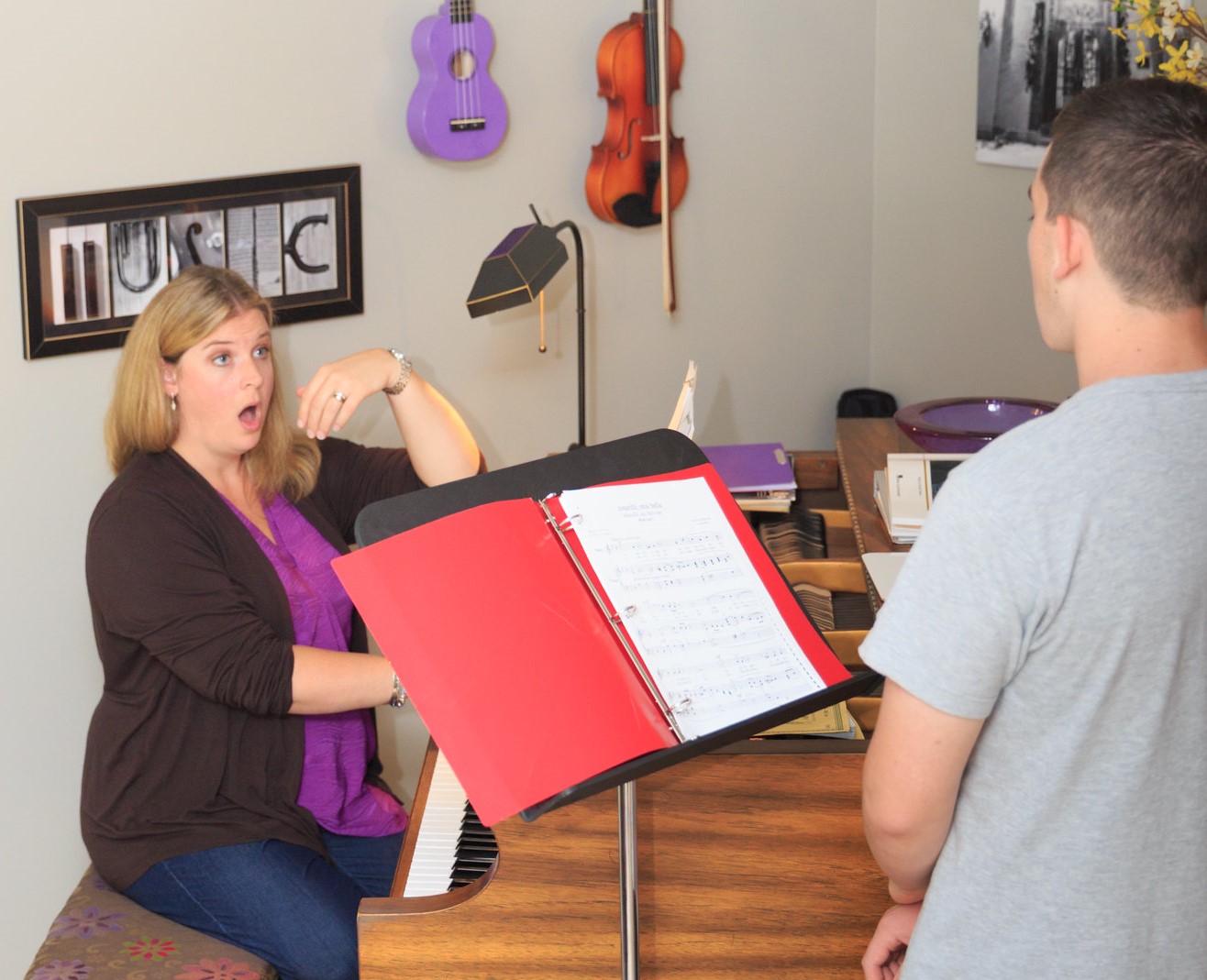Memorizing Music is Hard….things I learned from Bizet
Performing music memorized is next-level hard. And it should be! There are so many more things your brain has to do on top of the laundry list it already has just to expertly and effectively play or sing the music.
Here are the factors that make it hard, some tips to overcome them, and a personal example for practical application.
More than recall
When you memorize music, you are memorizing notes, rhythm, dynamics and style, and, if you are a vocalist, lyrics. And then you have to translate what you see visually into a physical response or activity. You not only have to just recall what you see on the page, but you have to do something with it! You have to know what fingering you need on your instrument. You have to know when and where to breathe. You have to know which syllable of which lyric goes where and what facial expressions or gestures are required to effectively communicate to an audience. Memorizing music requires recalling all of the elements, putting them all together, and interpreting them into art. And it all happens in an instant! I think this is why fast songs are way harder for me to memorize. But also, why once I get a fast song – it sticks!
Know the whole picture
Instruments are rarely played all by themselves. If you are singing or playing a solo, there is often at least one instrument (sometimes more) accompanying you. Knowing what the others do and how you fit into the ensemble is crucial. If you just sing or play your notes and rhythm without any consideration to the other musicians, it can lead to disaster! Imagine two different songs being played at the same time – ewww! That’s the level of disaster I mean here. You need to know how everything works together harmonically and rhythmically. If not, you could come in at the wrong time. And vocally, if there are other singers, you need to know what they are singing and saying. Performing music with others is a conversation or a dance. It is a team sport! While you should know your part the best, you also need to know to the level that it matters to the overall presentation, what everyone else has to do.
Complexity and Length are definitely a factor
Songs that are longer in length and have a more complicated musical form are harder to memorize. This seems fairly self-explanatory. But pieces that have multiple sections or movements; complicated counterpoint or multiple parts happening at once; lyrics that are in a foreign language; and are just plain long are hard when you are reading the score, let alone performing it from memory!
Here are some tips –
- Don’t try and memorize everything all at once.
- Memorize in sections
- Memorize transitions
- Repetition – repeat sections on a loop, then do the memorized section with the added transition only, then both sections together – getting transitions or first words of the next phrase, is often key to fully memorizing the piece.
- Study the form of the piece – look for sections that are repeated or sequenced as memory aids
- Learn the lyrics as spoken word and really know the story they tell – regardless of genre, there’s always a story in it!
Performance Distractions
When we perform our music from memory there can be so many internal and external distractions. Internally, we are worried about remembering everything. We are worried about feeling embarrassed if we mess up or forget parts. Externally, we are not looking at the music anymore, so – gasp! – we are looking around the room and seeing people’s faces and other things have a chance to enter our mind. We can be distracted in a silent room just by having different visual feedback then what we are used to. And then, what if the room isn’t silent and something else distracts us? Someone coughs. A baby cries. Someone walks in late. A cell-phone rings. Any number of things can cause us to lack concentration just long enough to forget where we are in the music and disrupt our performance. If our memorization is solid, we can continue through the distraction flawlessly and/or get right back on track if it does cause us a momentary stumble.
How can we combat these performance distractions?
Be prepared! Put in the work and the time required to really know your music. And then enjoy what you are doing. If you enjoy it, the audience will too – regardless of if you mess up. They are not judging you, I promise. Even adjudicated events and auditions – this audience is providing feedback and choosing the right person for the role, but they are not being judgmental in a malicious way. No one is out to get you, except you – so stop that!
How long does it take to memorize music?
Someone once told me that the answer to this question is – it takes as much time as you have. If you have a year to learn a new work or a new role in a show, it will take you a year. If you have a month, it will take you a month. The healthy fear of wanting to present your best is a powerful motivator to get you to organize your practice time to just get it done. The quick turn-arounds are the most stressful, but it can be done! And, bonus, you get to worry for a shorter amount of time.
Reflections on a recent memorization challenge….
What worried me the most about accepting a position in the Dayton Opera Chorus for their production of Bizet’s Carmen? Memorization! I was worried that I wouldn’t be able to memorize my music. The element of the music that worried me the most was the words. This opera is in French! I wasn’t as worried about memorizing the notes and rhythms and when to come in with my part. (Although 6 music rehearsals with my fellow choristers was so not enough!) I was worried that I would be the one singing “la-la,” albeit on the correct melody, because of the density and speed of the French lyrics – a valid fear, I assure you. Also, I am not required in my line of work as a teacher and occasional soloist-for-hire to memorize music. So, I don’t. The phrase “use it or loose it” kept coming to mind. Memory work gets less scary the more you do it. Notice I didn’t go so far as to say easier, although I’m sure that’s true.
The first time we tried one of the scenes “off-book” (i.e. memorized) it was….interesting. It was definitely challenging. Some parts went better than expected. Other parts that I thought for sure I had memorized just completely left my mind. This is another weird phenomenon that can occur when performing from memory. But forcing ourselves to attempt it early on was good. It revealed where we needed to practice and work more. It also reminded us we couldn’t wait until the last minute to begin the memory work.
Using the process in the tips I previously mentioned worked! It was up to the wire (like looking at the score in the dressing room between acts just to remind ourselves of first words and entrance points), but we did it! We memorized our music and our staging – mostly 😉 Was it stressful? At times. Was it perfect? No way. But I’m glad I pushed myself to join the team of musicians and dancers that, together, performed a significantly beautiful work of art….from memory!
NOT TAKING LESSONS YET?
BECOME A MEMBER
If you are interested in voice or piano lessons and are ready to find out all the details. Hope on over to our Memberships page and choose the one that fits you! And if you aren’t sure what you need, let’s figure it out!




